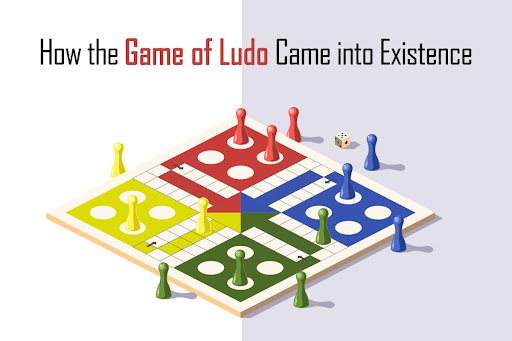Ludo is a game that has been played and loved by people across India and the world. This game brings back people’s most critical childhood memories and makes them rejoice in those scenes and reminisce about their days. It is a game whose history stretches to lands far, far away and plays a significant role in the history of the world as one of the best board games.
During the lockdown, online ludo game became a huge craze and erupted into the internet gaming place, creating huge waves that still make the game a crazy phenomenon. You only need the app on your device, and you are good to go for back-to-back rounds of the game till you tire out of facing online rivals.
Let’s take a deep dive into the history of Ludo and see what rituals the game had to go through to become what it is now.
Pachisi
This is one of the oldest formats of the modern game of Ludo. There are visual records of how Ludo evolved from a long old game of Pachisi, which was the first played by the Indians and closely resembled today’s Ludo style and manner. It was a circle board game that mutated into present-day Ludo after adding some more segments and renaming the original. One team in this game has yellow and black pieces while the other has red and green ones. To play this game of Pachisi, you had to go around the board in circles with the help of rolling a dice and eventually arrive at your home goal.
From Kurukshetra
Since the time of Kurukshetra, the game of Pachisi has been quite popular. As history is told in the books, the origin of the Ludo dice in the epic came from the cursed bones of the family members of Shakuni. This is critical to unraveling the story in Mahabharata, as the Kauravas went on to manipulate the game and win it for themselves with the help of Shakuni’s control of the dice. This is an essential part of India’s story that is needed to be understood by the people and has cemented the role of Ludo in Indian mythology forever.
Draupadi’s ‘cheerharan’ is the canonical event related to this specific game and remains an undying part of Indian culture and history which led to the most epic mythological battle between titans.
Mughals and Ludo
The more we come forward with the evolution of Ludo, we see it readily accepted by the Mughals and played as a game of royalty in the court. Akbar had his favorite game set as Ludo but what Mughals did to make the game larger than life was replace the use of stones and seeds with real-sized people as the pawns. This made Ludo a spectacle that could be enjoyed by people from all spheres and a sport that the public could freely engage in. From that, again, Ludo spread out its roots to the visitors of the royal court, who were awestruck by the fantastic spectacle of a game.
British Taking the Game
Eventually, as the colonizers came, they found that Ludo was at large played in India, which catered equally to the people from grassroots and to the royalty. A Britisher by the name of Alfred Collier was a high-ranking official who took the game to Europe and added a dice cup so that you could swivel and then throw the dice on the board, making it a kind of forced sophistication. They renamed the game Royal Ludo, and other variants seemed to come out after a short time. One favorite variant adopted by the British navy was ‘Uckers’. All of this looting and renaming with adapting happened during the year 0f 1891, and India lost much of its legacy to Europe post that time.
Ellora Caves and Wall Carvings
The non-written yet visual depiction of the earliest Ludo games is found in cave paintings of Ajanta and Ellora. It shows how the game was carved into history, making its way to people living simply in the caves, building the game with grids made on cloth, and playing with seeds, rocks, grains or shells. Evidence has also been found of the game being played on a slate with discoveries of new materials.
Modern Day Ludo
Today’s Ludo exists majorly online after the COVID outbreak made gaming on the internet more than usual. People have great fun with these classic representations of apps, where they provide a glitch-free experience with less lag and bugs. The games have spread everywhere in India where people are and connected them throughout with a common purpose. New modes of play are also being invented daily to keep the game constantly evolving, so it can be forever new to the audience and the people everywhere.
Final Thoughts
Many people think Ludo is a game of luck and not a definite challenge, but they are entirely wrong. Only the dice part is partially influenced by luck, but Ludo is mostly a genius game where you have to decide which way you need to move, which pawn and stop your tracks at the correct time so that your decisions help you to win the game. It is a game of patience and deduction, and the more you study its history, the better the game’s secrets will be revealed to you, slowly showcasing the rich legacy that the game has.








